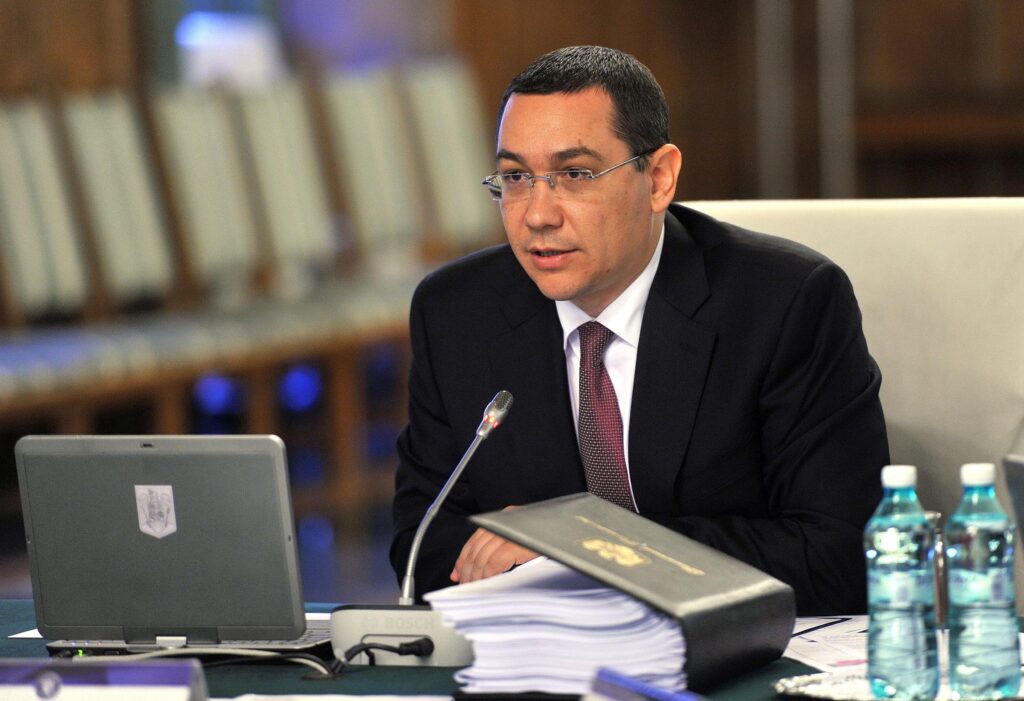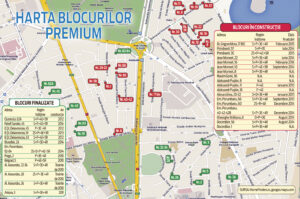There are various causes for this new episode of technical recession – defined as the result of two consecutive quarters of negative economic growth as measured by a country's GDP. The most obvious one is the steep contraction in investment: and, whether we’re talking about public or private works, the government had a decissive say in this matter during the first semester.
The current state of affairs is mirrored by several indicators. On the one hand, public spending was cut by 2.3 billion lei and is now one third lower than in the first half of last year. This led to a 10% shrinking in construction projects. In a similar manner, EU funds absorption hit new lows: the government managed to collect only 45% of the self-imposed target of 7.8 billion euros. This is why not one highway kilometer was added this year and so many projects were put on hold. Moreover, private investment remained modest, deterred by the governement’s financial policies. Thetax on special constructions (the so-called utility pole tax), applied to companies’ assets exempt from local taxes, called a halt to any potential projects.
Virtually no investing at all
According to Andrei Rădulescu, Banca Transilvania’s senior economist, “in the first semester, any investment plans companies may have had were discouraged by the fuel excise and the tax on special constructions. The unfavourable development of productive investment took a toll on the entire economy”. And especially on companies’ balance sheets: OMV Petrom, for example, recorded a 7% slump in fuel sales, blaming the increasing excise taxes, and also decided to give up on some investment projects due to the enforcement of the utility-pole tax.
The growing taxes had depressing consequences on the entire business environment, thus bluntly contravening the government plans of boosting the budget revenues. Despite the increase coming into force as of April 1, during the second trimester the excise duty revenues were 380 million lei lower than in the first trimester. Foreign direct investment value was in turn 10%lower, after a 70% downfall in June. When analyzing FDI trends, one has to keep in mind the international context, as the Ukraine conflict put a stamp on CEE as a risky region and thus set off aforeign capital migration.
Amid tensions in the region and the food embargo Russia imposed on US and EU countries, the exporters in agriculture have the most to lose. There is no exact damage quantification so far, but the fierce competition between European companies on the single market will have serious repercussions on the Romanian exporters. Thus, the geopolitical distress is followed by a disruption in the agriculture revenues. “The mere fact that a remarkable agricultural year such as 2013 had such a huge impact on the GDP dynamic is worrying and indicative of the primitive state of the Romanian so-called capitalism. A weather-sensitive GDP is a bad omen for our future welfare. All in all, I think we shouldn’t get too anxious about the current recession, but in the mean time I’m sure our leaders committed a childish mistake by boasting about last year’s GDP”, explains Bogdan Glăvan, Professor of Economics.
Government’s empty investment pockets
Economy experts were baffled by the unexpectedly weak results in the first semester. We can only expect a precise diagnosis in September, after the National Institute of Statistics publishes official detailed data. Still, the forecasts for 2014 were already altered, andinitial estimates of 3.5-4% were curbed to 2-2.5%.
For the convergence programme in April, the government predicted a 2.5% GDP growth rate, while the August budget rectification came with a 2.8% growth estimate. Based on a 662.3 billion lei GDP, the government allowed the budget deficit to increase by 270 million lei, thus preserving the established ceiling of 2.2% of GDP. Keeping that the budget deficit had only reached 0.5% of GDP after the first six months, the government has enough room to invest and thus counterbalance the weak results in the first semester,at least in theory.
Liviu Voinea, the Budget minister, seems pretty upbeat about this prospect. “For the first six months, the budget deficit stood at 0.5%, while preliminary data for the first seven months suggest a 0.27-0.3% rate. Thus, the 2.2% ceiling allows enough fiscal room for public investments. Moreover, as of the 1st of July, a new legislation providing the annulment of any tax leviedon reinvested profits and a minimum wage increase came intro force, two measures meant to boost private consumption”.
In the first semester, the government kept a tight grip on the deficit: this strategy is justified not only by the authorities’ clumsiness in opening new construction sites or wisely investing public money, but mainly by poortax collection. Despite the tax hikes, the government collected less than it had initially estimated. For example, in the VAT department there is a 1.5 billion lei gap.
Useless tax hikes
According to Ionut Dumitru, chairman of the Fiscal Council, „tax collection is a matter of country management. In the first semester, retail sales were up by 8.9%, but VAT collection was very disappointing, and no corrective measures were taken”. Generally, the budget deficit increases in the second half of the year and swells in the last two months. During election years such as 2014, public spending increases, but no major investment project benefits from this generosity. Social spending is takes precedence in election times: it is therefore rather unlikely that the government will restart public projects and thus boost economic growth.
Long story short, the state doesn’t come up with investment projects, and also hinders any potential development because of the poor collection. On the other hand, the government’s very ability to spend the money is open to doubt. “Usually, the authorities are very skilled at spending to no avail, at artificially swelling the GDP while undermining social welfare. A fake GDP increase based on arbitrary public spending will do more harm than good. While it looks good on paper, it is not enough, since money is spent on projects no one really needs”, says Bogdan Glăvan.
By imposing new tax hikes, the government displaced large sums from the real economy, but failed to collect enough or to finance some valuable projects with the money it virtually ripped off from the business environment. Moreover, the decisions were backed by such a poor public discourse that potential investors were put off by the ambiguity, the unpredictability and the lack of any economic basis.





